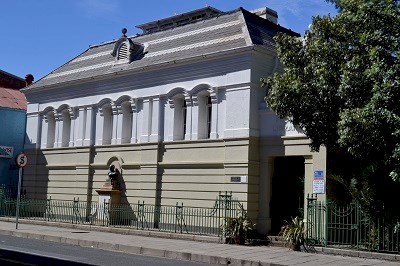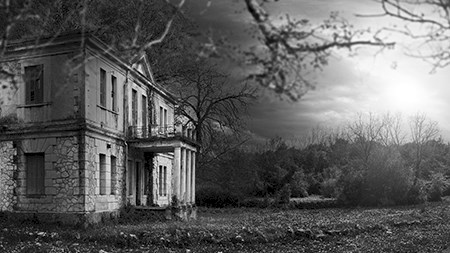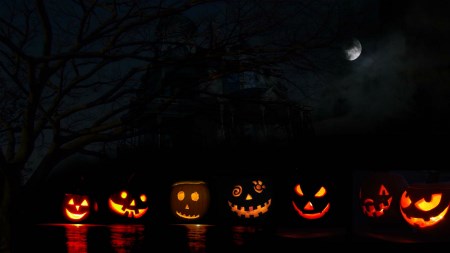Everyone loves a good ghost story and as Halloween approaches, we thought we’d take a tour of some of SA’s haunted properties.
As Halloween approaches, thoughts inevitably turn to spooky costumes, trick-or-treat events, and ghostly tales. While there are numerous famous (or infamous depending on your point of view) properties and places around the world, South Africa also plays host to a number of its own ‘haunted’ venues. The following are just a few of the South African properties which have earned a reputation for their otherworldly qualities.
5 Haunted properties in South Africa
1. Kempton Park Hospital, Johannesburg:
This building wouldn’t look out of place on a horror movie set. Closed a day after Christmas in 1996, Kempton Park Hospital has earned a reputation for being one of the creepiest places in Johannesburg. Inexplicably, although the hospital was closed, much of the equipment, beds, furnishings, and numerous patient files were simply left behind. Broken wheelchairs litter the overgrown sidewalks, rusted operating tables have been discarded in dank operating theatres, broken lights hang down from the ceiling – and ghosts reportedly walk the halls. The hospital has become a popular ghost hunting venue over the years. Whether or not the ghosts will remain if the hospital is refurbished, as is supposedly set to happen, remains to be seen.

2. Castle of Good Hope:
It’s not surprising that the Castle of Good Hope (which is actually a fort) makes the list. Built by the Dutch East India Company in 1666, the castle is South Africa’s oldest surviving colonial building. Many notable events unfolded at the castle over the years and numerous prisoners were kept under lock and key in the castle’s cramped, dark cells. A number of inexplicable events are said to have occurred in and around the castle. The bell apparently rings of its own accord in the bell tower, a black dog rushes visitors and then disappears, screams have been heard and Lady Anne Barnard, the colony’s former first lady likes to show up for the odd party – even though she’s been dead for centuries.
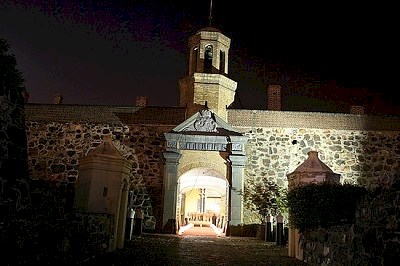
3. Rudd House, Kimberley:
Rudd House has earned a reputation as one of the most paranormally active houses in South Africa. The house was built in the 1870s by H.P Rudd, Chairman of the De Beers Company for his family. A beautiful home, it features wrap-around verandas, period columns, and a tin roof. The house was passed down to various members of the Rudd family and expanded extensively. It was eventually donated and turned into a museum - reportedly because the family could no longer tolerate the many unusual events which occurred within the house. A baby has been heard wailing, a ghostly woman has been spotted on the balcony, silverware has rattled of its own accord and one caretaker reported hearing plates crashing in the pantry, night after night. So spooky was the house that a renowned paranormal investigator undertook to investigate it. He recorded several manifestations and orbs during his studies. Today, the house can be visited by appointment – if you dare.
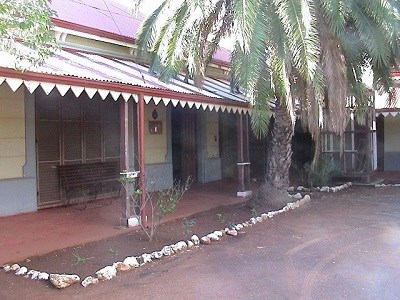
4. Richly House, Port Elizabeth:
With 109 years of history behind it, there’s little wonder Richly House in Port Elizabeth has a few skeletons in the closet. A fairly unassuming property, Richly House has been used for various purposes including a nursing home and a brothel. Visitors have reported hearing the cries of a child and have encountered a nun, an old man who has a tendency to cause trouble in the kitchen, and a woman and child dressed in clothes from yesteryear. Although the ghosts seem to take no notice of visitors, for the most part, one ghost has been known to try and strangle staff in the domestic quarters.
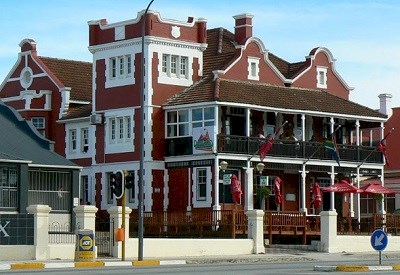
5. Africana Library, Kimberley:
Completed in 1868, the old Kimberly Library, now the Africana Library still sports many original architectural features including beautiful spiral staircases. The library reportedly houses one of the largest and most valuable collections of old books and manuscripts in the world. You might not want to peruse these books on your own though. Legend has it that a former librarian, Bertrand Dyer, committed suicide when a book pricing scam he had concocted was discovered. Unable to bear the shame, he drank arsenic. Unfortunately for Dyer, it took three days for him to succumb. Visitors have reported seeing a man dressed in period clothing wandering the shelves. Books have also apparently crashed to the floor for no reason and teacups can often be heard “tinkling” around teatime.
